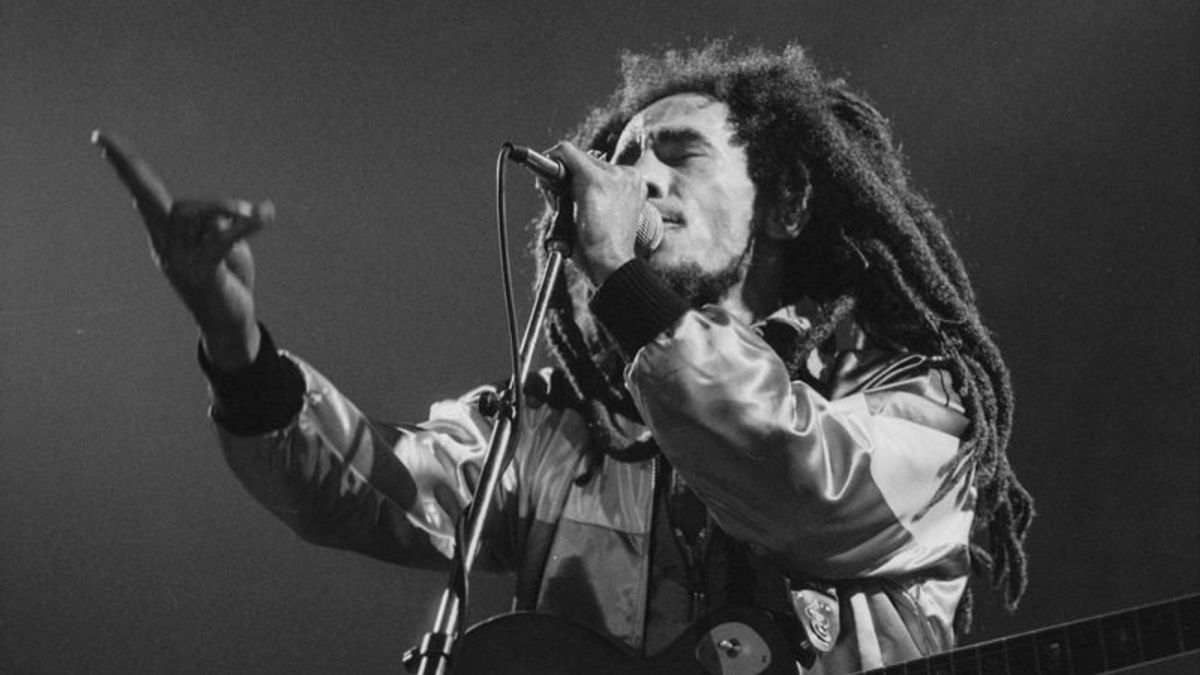JAKARTA History today, 47 years ago, June 3, 1977, the music label Island Record released Bob Marley Exodus' phenomenal album. The presence of the album was greeted with great fanfare throughout the world. Even then Exodus became one of the best albums of all time.
Previously, the political conditions in Jamaica forced Marley to criticize through songs. Problems arise. Marley is considered to be affiliated with one of the political parties. This condition put his life at risk. He chose to move to England and make music again.
Robert Nesta Marley's life is full of twists and turns. The man who was born in Nine Mile, Jamaica on February 6, 1945, had to fight with his hard life. His white father never considered his presence. In fact, his father was a high-ranking employee of the British colonialists.
This condition made Marley live with his mother in the midst of poverty. he spent his childhood living as a farmer's family. They then lived in Trenchtown. Marley was lucky to be able to taste education.
It was the momentum of going to school that made Marley begin to love singing. Every time there is a break, Marley's school is always given the opportunity to sing by his teacher. The excitement of music grows.
This popularity is getting stronger because almost every city streets always play music from the radio. He began to get along with the works of world musicians such as Elvis Prasley, James Brown, to Nat (King) Cole. Marley also decided his way of life in the entertainment world.
Every day during his activities as a welder, Marley began to compose his own songs. He liked Ska music, but with the tempo that was slowed down until the world then got to know him as reggae music.
He was also present in the reggae music group, Rude Boys, then The Wailers. Marley and his band began to give birth to several music albums that were massively circulated in Jamaica. His career increased when Marley signed a deal with Island Record in 1972.
The deal made Marley's songs reach wider music fans: the world. This existence makes Bob Marley like a new 'god' in Jamaica. He is currently cultuated as uniting the Jamaican people.
Marley's charm and charisma are also considered to side with one of the local political parties. That condition made him almost killed.
He is also a well-known political figure and in 1976 survived an assassination attempt believed to be politically motivated. The Smile Jamaica concert where Marley and the Wailers are scheduled to appear on December 5, 1976, and which was originally framed as a political community celebration. It was then widely seen as support for the prime minister in office, Michael Manley of the People's National Party.
The figure is trying to take advantage of this perception by following the announcement of the concert with calls for legislative elections. Two days before the concert, a group of armed men, may be trying to punish Marley for his support for Manley, breaking into Marley's house and injuring Rita Marley, manager Bob Marley (Don Taylor), a band employee, and Marley himself, "is written on the Brittannica page.
Political chaos and life in danger are the peak of Marley's ferocity living in Jamaica. He felt Jamaica was no longer safe for him to work. This condition made Marley move to England. There, Marley started his new life with great enthusiasm.
He and his bandmates started the creative process of creating songs. Hits-hits mainstays in the form of Jamming, Waiting in Vain, Turn Your Lights Down Low, Three Little Bird, and One Love/People Get Ready created. The song was then released on the album Exodus released by Island Record on June 3, 1977.
SEE ALSO:
The world is also enthusiastic about the presence of Exodus Karya Bob Marley. The album is being hunted by many people. In fact, then Exodus' album became one of the best reggae albums of all time.
Album Bob Marley & The Wailers in 1977, Exodus, is universally heralded as a classic reggae work. In 1999 Time magazine even described it as the best album of the 20th century.Exodus clearly shining as one of Bob Marley's best time capsules, a work that combines political and cultural ideas and attracts Third World inspiration," wrote Tim McPhate in his writing on the Grammy.com page, June 1, 2018.
The English, Chinese, Japanese, Arabic, and French versions are automatically generated by the AI. So there may still be inaccuracies in translating, please always see Indonesian as our main language. (system supported by DigitalSiber.id)

















